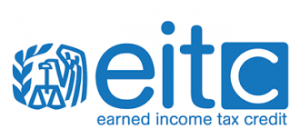The Earned Income Tax Credit (EITC) Explained for 2024: Unlocking Financial Benefits
As the 2024 tax season approaches, millions of American taxpayers are eager to understand the Earned Income Tax Credit (EITC) and its implications.
TRAVERSE CITY, MI, US, September 13, 2023/EINPresswire.com/ -- As the 2024 tax season approaches, millions of American taxpayers are eager to understand the Earned Income Tax Credit (EITC) and its implications for their financial well-being.
The EITC, designed to assist low to moderate-income individuals and families, continues to be a significant financial resource for eligible taxpayers.
Key Highlights of the Earned Income Tax Credit (EITC) for 2024.
Enhanced EITC for 2024: The EITC is expected to remain a valuable tax credit in 2024, providing financial relief to eligible taxpayers.
While the exact figures are subject to change, the EITC typically undergoes adjustments to account for inflation, which may result in higher credit amounts compared to previous years.
Income Eligibility Criteria: To qualify for the EITC in 2024, taxpayers must meet income requirements based on their filing status and the number of qualifying children. These criteria are designed to target assistance to those with lower incomes.
Qualifying Children: One key factor influencing the EITC amount is the number of qualifying children in the household. Taxpayers with more qualifying children generally receive a larger credit. Qualifying children must meet certain age, relationship, and residency requirements.
Phase-Out Thresholds: The EITC is subject to phase-out limits for higher-income taxpayers. As a taxpayer's income exceeds these thresholds, the EITC gradually decreases until it reaches zero. Understanding these phase-out limits is essential for accurate tax planning.
Married vs. Single Filers: Married couples may choose to file jointly or separately, which can impact their EITC eligibility and credit amount. It's advisable for couples to calculate their EITC for both filing statuses to determine which option is more advantageous.
Self-Employed Individuals: Self-employed individuals and small business owners may also qualify for the EITC if they meet the income and other eligibility requirements. Understanding the documentation needed to claim the credit is essential for self-employed taxpayers.
Free Tax Assistance: Many taxpayers who are eligible for the EITC may also qualify for free tax preparation assistance through IRS-sponsored Volunteer Income Tax Assistance (VITA) and Tax Counseling for the Elderly (TCE) programs. These services can help ensure accurate EITC claims.
Advance EITC Payments: Some eligible taxpayers may receive advance EITC payments throughout the year, which can provide immediate financial assistance. These payments are typically based on the previous year's tax return and can help alleviate financial hardships.
In conclusion, the Earned Income Tax Credit for 2024 remains a vital financial resource for eligible taxpayers, offering potential relief and assistance during tax season.
Understanding the EITC's eligibility criteria, income thresholds, and impact on tax refunds can help individuals and families make informed financial decisions and maximize their benefits. To learn more, visit https://americantaxservice.org/who-can-qualify-earned-income-credit/
Frank Ellis
Harbor Financial
+1 231-480-4086
email us here
Visit us on social media:
LinkedIn
Legal Disclaimer:
EIN Presswire provides this news content "as is" without warranty of any kind. We do not accept any responsibility or liability for the accuracy, content, images, videos, licenses, completeness, legality, or reliability of the information contained in this article. If you have any complaints or copyright issues related to this article, kindly contact the author above.



